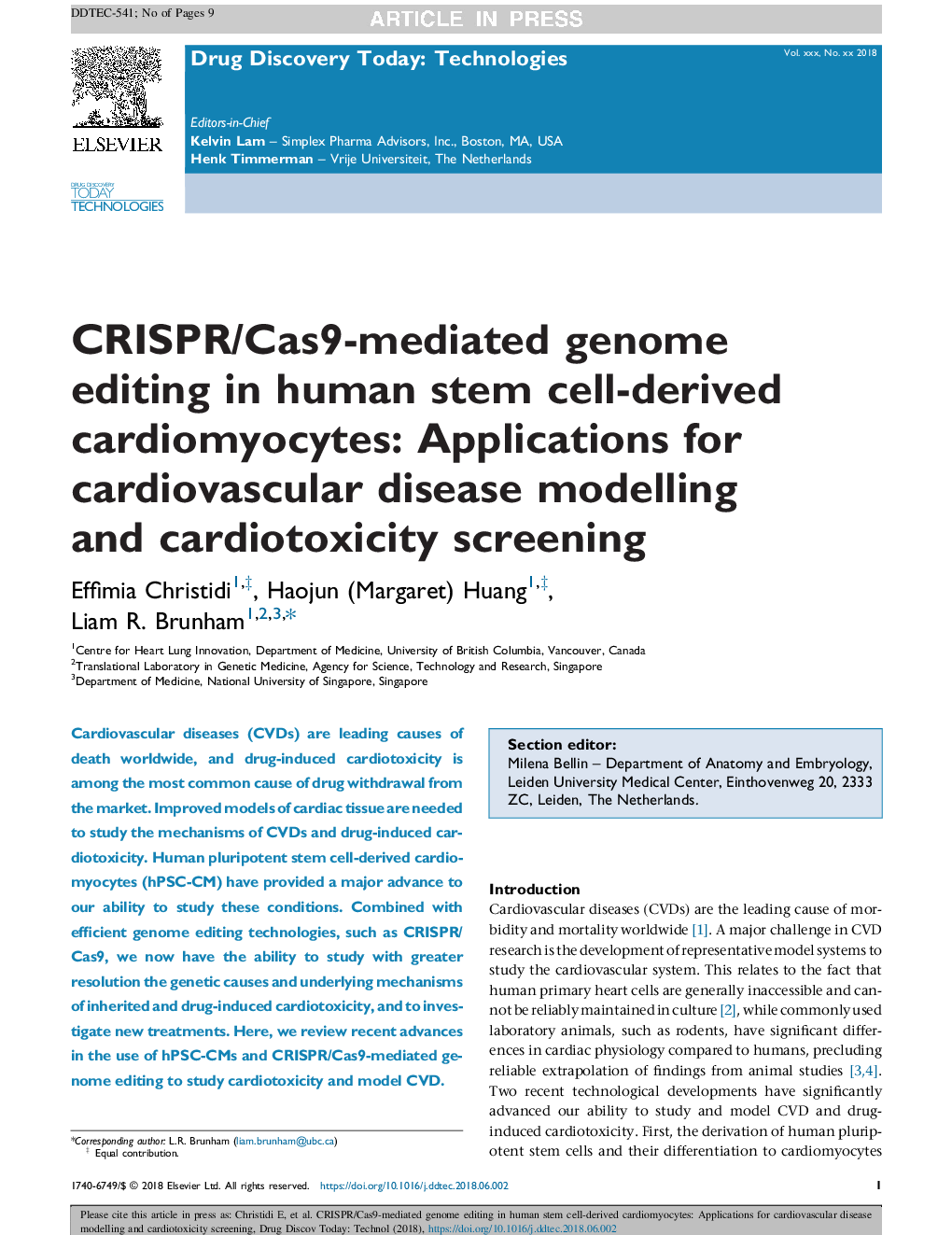| Article ID | Journal | Published Year | Pages | File Type |
|---|---|---|---|---|
| 8965588 | Drug Discovery Today: Technologies | 2018 | 9 Pages |
Abstract
Cardiovascular diseases (CVDs) are leading causes of death worldwide, and drug-induced cardiotoxicity is among the most common cause of drug withdrawal from the market. Improved models of cardiac tissue are needed to study the mechanisms of CVDs and drug-induced cardiotoxicity. Human pluripotent stem cell-derived cardiomyocytes (hPSC-CM) have provided a major advance to our ability to study these conditions. Combined with efficient genome editing technologies, such as CRISPR/Cas9, we now have the ability to study with greater resolution the genetic causes and underlying mechanisms of inherited and drug-induced cardiotoxicity, and to investigate new treatments. Here, we review recent advances in the use of hPSC-CMs and CRISPR/Cas9-mediated genome editing to study cardiotoxicity and model CVD.
Related Topics
Life Sciences
Biochemistry, Genetics and Molecular Biology
Biotechnology
Authors
Effimia Christidi, Haojun (Margaret) Huang, Liam R. Brunham,
